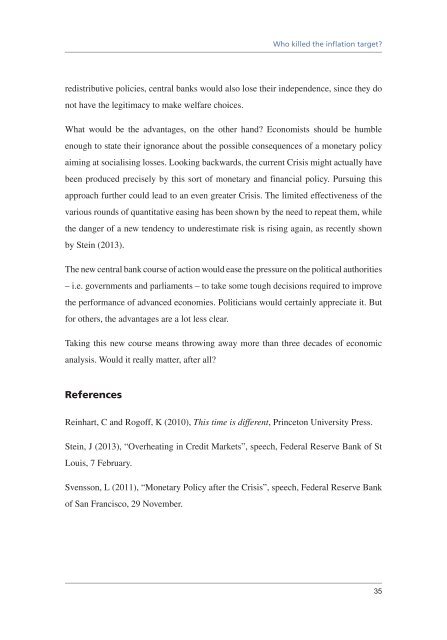Create successful ePaper yourself
Turn your PDF publications into a flip-book with our unique Google optimized e-Paper software.
Who killed the <strong>inflation</strong> target?redistributive policies, central banks would also lose their independence, since they donot have the legitimacy to make welfare choices.What would be the advantages, on the other hand? Economists should be humbleenough to state their ignorance about the possible consequences of a monetary policyaiming at socialising losses. Looking backwards, the current Crisis might actually havebeen produced precisely by this sort of monetary and financial policy. Pursuing thisapproach further could lead to an even greater Crisis. The limited effectiveness of thevarious rounds of quantitative easing has been shown by the need to repeat them, whilethe danger of a new tendency to underestimate risk is rising again, as recently shownby Stein (2013).The new central bank course of action would ease the pressure on the political authorities– i.e. governments and parliaments – to take some tough decisions required to improvethe performance of advanced economies. Politicians would certainly appreciate it. Butfor others, the advantages are a lot less clear.Taking this new course means throwing away more than three decades of economicanalysis. Would it really matter, after all?ReferencesReinhart, C and Rogoff, K (2010), This time is different, Princeton University Press.Stein, J (2013), “Overheating in Credit Markets”, speech, Federal Reserve Bank of StLouis, 7 February.Svensson, L (2011), “Monetary Policy after the Crisis”, speech, Federal Reserve Bankof San Francisco, 29 November.35



